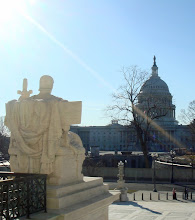Day 2 Electoral College
Oliver Hardy first proclaimed on the silver screen to his friend Stan Laurel, “Well, here’s another nice mess you’ve gotten me into!” in the 1929 film “Double Whoopee.” As the election draws near and people head to the polls, a lack of understanding about the Electoral College and how it operates imperils our republic.
The news is fraught with reports of cities preparing for riots in the wake of the election. Businesses are standing up emergency operation centers. Celebrities make empty threats to renounce their citizenship, depending on who wins. Hysteria abounds.
Additionally, and most ruthlessly and recklessly, people are told that in the popular election their votes are thrown away if they don’t vote for a particular candidate. I, myself, was told this a while back by an otherwise learned friend. I will address this most piteous charge in our final discussion tomorrow.
In devising our system of government, the Framers of the Constitution, exceedingly well-studied people to be sure, examined various forms of government from the annals of history. They considered the aspects of those governments that worked and those that led to eventual demise…or to the ongoing repression of the people. Painstakingly, they crafted a system that would mitigate the errors of the past and would most equitably represent the will of the people.
The Electoral College was on part of this system.
Article II, Section 1, Clauses 2 and 3 of the Constitution state, “Each State shall appoint, in such Manner as the Legislature thereof may direct, a Number of Electors, equal to the whole Number of Senators and Representatives to which the State may be entitled in the Congress; but no Senator or Representative, or person holding an Office of Trust or Profit under the United States shall be appointed an Elector. The Congress may determine the Time of chusing the Electors, and the Day on which they shall give their Votes; which Day shall be the same throughout the United States.”
In devising this system, the Framers sought to minimize chaos and corruption. As Alexander Hamilton wrote in Federalist 68, “It [the electoral college process, which included a careful deliberation of the qualities of presidential candidates] was also particularly desirable to afford as little opportunity as possible to tumult and disorder.” Hamilton later continued, “nothing was more to be desired than that every practicable obstacle should be opposed to cabal, intrigue, and corruption. These most deadly adversaries of republican government might naturally have been expected to make their approaches from more than one quarter, but chiefly from the desire in foreign powers to gain an improper ascendant in our councils.”
It is as if Hamilton was writing about today!
The Electoral College was originally envisioned as the collective of deliberative bodies in each state, elected by the states’ citizens in accordance with each state’s selection process. Remember that the Founders and Framers envisioned each state to be laboratory for promoting liberty and sound governance. Generally, citizens would select electors through popular vote and the electors would meet to choose the candidate who would get their state’s electoral votes. The electors would weight the popular vote results as well as the characteristics and qualities of the candidates. In doing so, electors were subject to the prescriptions and proscriptions of their respective state’s rules.
Over time, the processes in many states have removed that deliberative process in favor of more mechanistic approaches to allocating their electoral votes. The selection of electors still takes place, but it is veiled in most states in that selecting a candidate’s name on the popular ballot serves as a proxy for selecting electors.
At its heart, the Electoral College was designed to keep the selection of a President as local a decision as possible, thus minimizing the influence and corruption inherent in processes that are managed at the federal level. Over time, the hybrid approach that the Framers envisioned – one that relies on popular suffrage and includes informed deliberation, has lost the latter and its favorable effects. Maybe this is the cause of people’s true dissatisfaction with the college today.
In conceiving the Elector College, I wonder if the Framers were drawing on Cicero and “The Republic.” He suspected that a mixed constitution was desirable, meaning a combination of popular input with the deliberation of statesmen.
Despite being awash in information in our day and age, I venture to say that we are less informed than ever. Be it the fact that we consume information by reading headlines or tweets, or that we believe one perspective constitutes a sole source of truth and the other perspective is characterized as “fake news,” the American people have become dangerously uninformed.
Might it be the perfect time to breathe new life into this time-honored system that is the Elector College, before we get ourselves into another nice mess? That mess, of course, will be defined differently for each of us, based on the political philosophy to which we subscribe.

No comments:
Post a Comment